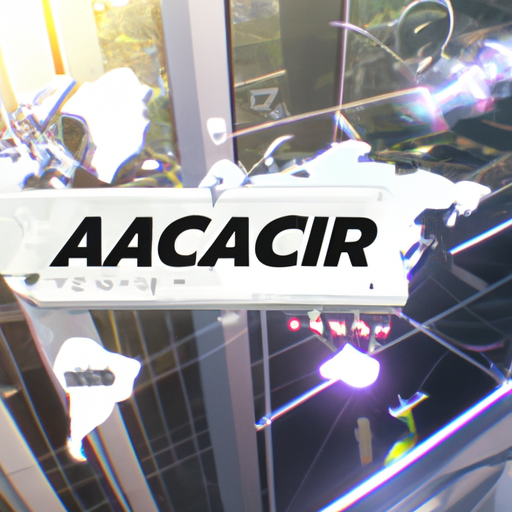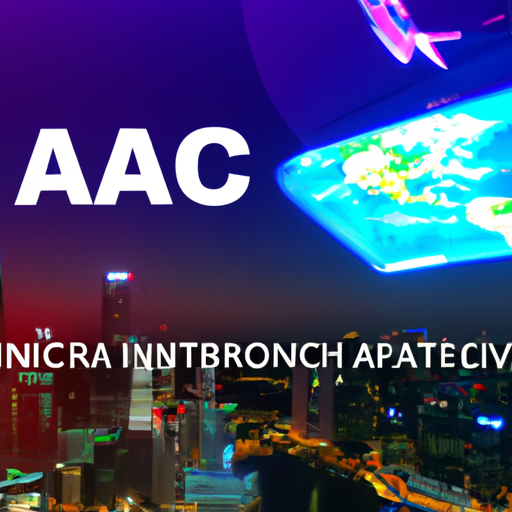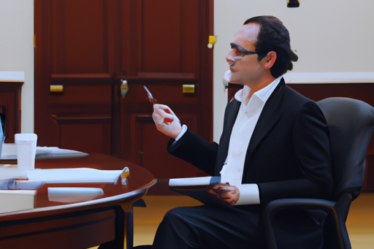
Key Highlights of ICAO Air Navigation Commission’s Visit to Singapore
The International Civil Aviation Organization (ICAO) Air Navigation Commission recently concluded its three-day visit to Singapore, leaving behind a trail of key highlights and accomplishments. The visit, which aimed to strengthen cooperation and exchange knowledge in the field of air navigation, proved to be a fruitful endeavor for both parties involved.
One of the key highlights of the ICAO Air Navigation Commission’s visit was the opportunity to engage in productive discussions with Singapore’s aviation authorities. These discussions covered a wide range of topics, including the latest advancements in air navigation technology, safety measures, and regulatory frameworks. The exchange of ideas and best practices allowed both parties to gain valuable insights and learn from each other’s experiences.
During the visit, the ICAO Air Navigation Commission also had the chance to witness firsthand Singapore’s state-of-the-art air navigation facilities. The commission members were given a comprehensive tour of the country’s air traffic control centers, radar systems, and communication networks. This firsthand experience provided them with a deeper understanding of Singapore’s commitment to ensuring safe and efficient air navigation.
Furthermore, the visit served as an opportunity for the ICAO Air Navigation Commission to recognize Singapore’s efforts in promoting sustainable aviation. The commission commended Singapore for its initiatives in reducing carbon emissions and implementing environmentally friendly practices. Singapore’s commitment to sustainable aviation aligns with ICAO’s global efforts to mitigate the environmental impact of air travel.
In addition to discussions and facility visits, the ICAO Air Navigation Commission also participated in workshops and training sessions organized by Singapore’s aviation authorities. These sessions focused on enhancing the commission members’ knowledge and skills in various areas of air navigation, such as airspace management, air traffic flow management, and aviation safety. The interactive nature of these sessions allowed for a dynamic exchange of ideas and fostered a spirit of collaboration between the commission and Singapore’s aviation community.
The visit also provided an opportunity for the ICAO Air Navigation Commission to engage with Singapore’s aviation industry stakeholders. The commission members had the chance to meet with representatives from airlines, airports, and other aviation service providers. These meetings allowed for a comprehensive understanding of the challenges and opportunities faced by the industry in Singapore. The commission members were able to provide valuable insights and recommendations based on their expertise, which will contribute to the continuous improvement of Singapore’s aviation sector.
Overall, the ICAO Air Navigation Commission’s visit to Singapore was a resounding success. The exchange of knowledge, experiences, and best practices between the commission and Singapore’s aviation authorities has strengthened cooperation and fostered a spirit of collaboration. The visit also highlighted Singapore’s commitment to safe, efficient, and sustainable air navigation. The commission members left Singapore with a deeper understanding of the country’s aviation landscape and valuable insights that will contribute to the advancement of air navigation globally.
In conclusion, the ICAO Air Navigation Commission’s three-day visit to Singapore was a productive and enriching experience for all parties involved. The visit showcased Singapore’s commitment to safe and sustainable air navigation, while also providing the commission members with valuable insights and knowledge. The exchange of ideas and best practices will undoubtedly contribute to the continuous improvement of air navigation worldwide.
Singapore’s Role in International Air Navigation: Insights from ICAO Commission Visit

The International Civil Aviation Organization (ICAO) Air Navigation Commission recently concluded a three-day visit to Singapore, where they gained valuable insights into the country’s role in international air navigation. The visit provided an opportunity for the commission to understand Singapore’s contributions to the global aviation industry and explore potential areas of collaboration.
During their visit, the ICAO commission had the chance to meet with various stakeholders in Singapore’s aviation sector, including government officials, industry leaders, and aviation experts. These meetings allowed for fruitful discussions on a wide range of topics, from air traffic management to airport infrastructure development.
One of the key takeaways from the visit was Singapore’s commitment to ensuring safe and efficient air navigation. The country has invested heavily in advanced technologies and infrastructure to enhance its air traffic management capabilities. The commission was particularly impressed with Singapore’s state-of-the-art air traffic control center, which utilizes cutting-edge systems to monitor and manage air traffic in the region.
Singapore’s efforts in promoting sustainable aviation were also highlighted during the visit. The country has been actively involved in developing and implementing environmentally friendly initiatives to reduce the aviation industry’s carbon footprint. The commission commended Singapore for its commitment to sustainable practices and expressed interest in collaborating on future projects in this area.
Another aspect that caught the commission’s attention was Singapore’s role as a regional aviation hub. The country’s strategic location, excellent connectivity, and world-class infrastructure have made it a preferred destination for airlines and passengers alike. The commission recognized Singapore’s efforts in fostering a conducive environment for the aviation industry to thrive, which has contributed significantly to the region’s economic growth.
Furthermore, the commission was impressed by Singapore’s commitment to capacity building and training in the aviation sector. The country has established several training institutions and programs to develop a skilled workforce for the industry. The commission expressed interest in exploring opportunities for knowledge sharing and collaboration in this area, as it recognized the importance of a well-trained workforce in ensuring safe and efficient air navigation.
Overall, the ICAO Air Navigation Commission’s visit to Singapore provided valuable insights into the country’s role in international air navigation. Singapore’s commitment to safety, sustainability, and capacity building in the aviation sector was highly commendable. The commission expressed its appreciation for Singapore’s contributions to the global aviation industry and expressed a desire to further strengthen collaboration in the future.
As the visit concluded, both the ICAO commission and Singaporean stakeholders expressed optimism about the future of international air navigation. The visit served as a platform for meaningful discussions and knowledge exchange, paving the way for enhanced cooperation and innovation in the aviation sector. Singapore’s role as a key player in the global aviation industry was reaffirmed, and the country’s commitment to excellence and continuous improvement was evident throughout the visit.
In conclusion, the ICAO Air Navigation Commission’s visit to Singapore shed light on the country’s significant contributions to international air navigation. Singapore’s commitment to safety, sustainability, and capacity building in the aviation sector was highly regarded by the commission. The visit served as a catalyst for future collaboration and innovation, ensuring that Singapore remains at the forefront of the global aviation industry.
Evaluating the Impact of ICAO Air Navigation Commission’s Visit to Singapore
The International Civil Aviation Organization (ICAO) Air Navigation Commission recently concluded its three-day visit to Singapore. This visit was aimed at evaluating the impact of the commission’s work on air navigation in the country. The ICAO Air Navigation Commission is responsible for developing and implementing international standards and regulations for air navigation.
During their visit, the commission members met with various stakeholders in the aviation industry, including government officials, airline representatives, and air traffic controllers. They also visited key aviation facilities and observed the operations of the air navigation system in Singapore.
One of the main objectives of the visit was to assess the effectiveness of the air navigation system in Singapore. The commission evaluated the performance of the system in terms of safety, efficiency, and environmental sustainability. They also looked at the implementation of ICAO’s standards and recommended practices in the country.
The commission was particularly interested in Singapore’s efforts to enhance safety in air navigation. They examined the measures taken by the government and aviation authorities to ensure the safe operation of aircraft in the country’s airspace. This included the implementation of safety management systems, the training of air traffic controllers, and the use of advanced technology for air traffic control.
Another area of focus for the commission was the efficiency of the air navigation system. They assessed the capacity of Singapore’s airports and airspace to handle the increasing number of flights. They also looked at the measures taken to reduce delays and improve the flow of air traffic. This included the use of performance-based navigation procedures and the implementation of collaborative decision-making processes between airlines and air traffic control.
The commission also evaluated Singapore’s efforts to promote environmental sustainability in air navigation. They examined the measures taken to reduce greenhouse gas emissions from aircraft operations, such as the use of more fuel-efficient aircraft and the implementation of sustainable aviation fuels. They also looked at the initiatives taken to minimize noise pollution around airports and to protect the environment in the vicinity of flight paths.
Overall, the ICAO Air Navigation Commission was impressed with Singapore’s air navigation system. They commended the country for its commitment to safety, efficiency, and environmental sustainability. They noted that Singapore has implemented many of ICAO’s standards and recommended practices and has taken additional measures to enhance the performance of its air navigation system.
The commission also provided recommendations for further improvement. They suggested that Singapore continue to invest in advanced technology for air traffic control and explore new ways to enhance the capacity of its airports and airspace. They also encouraged the country to collaborate with neighboring countries to improve regional air navigation.
In conclusion, the visit of the ICAO Air Navigation Commission to Singapore was a valuable opportunity to evaluate the impact of the commission’s work on air navigation in the country. The commission’s assessment highlighted Singapore’s achievements in terms of safety, efficiency, and environmental sustainability. It also provided recommendations for further improvement, which will help Singapore continue to enhance its air navigation system in the future.


